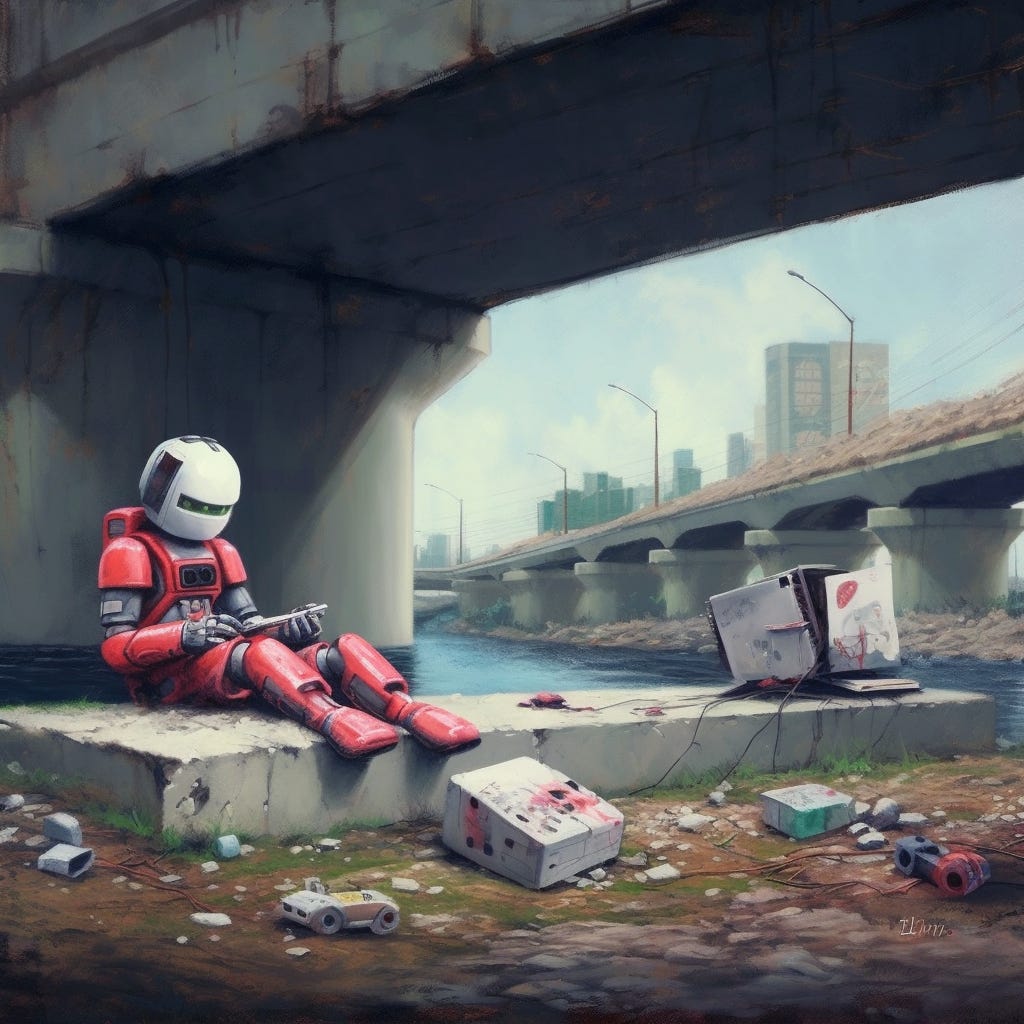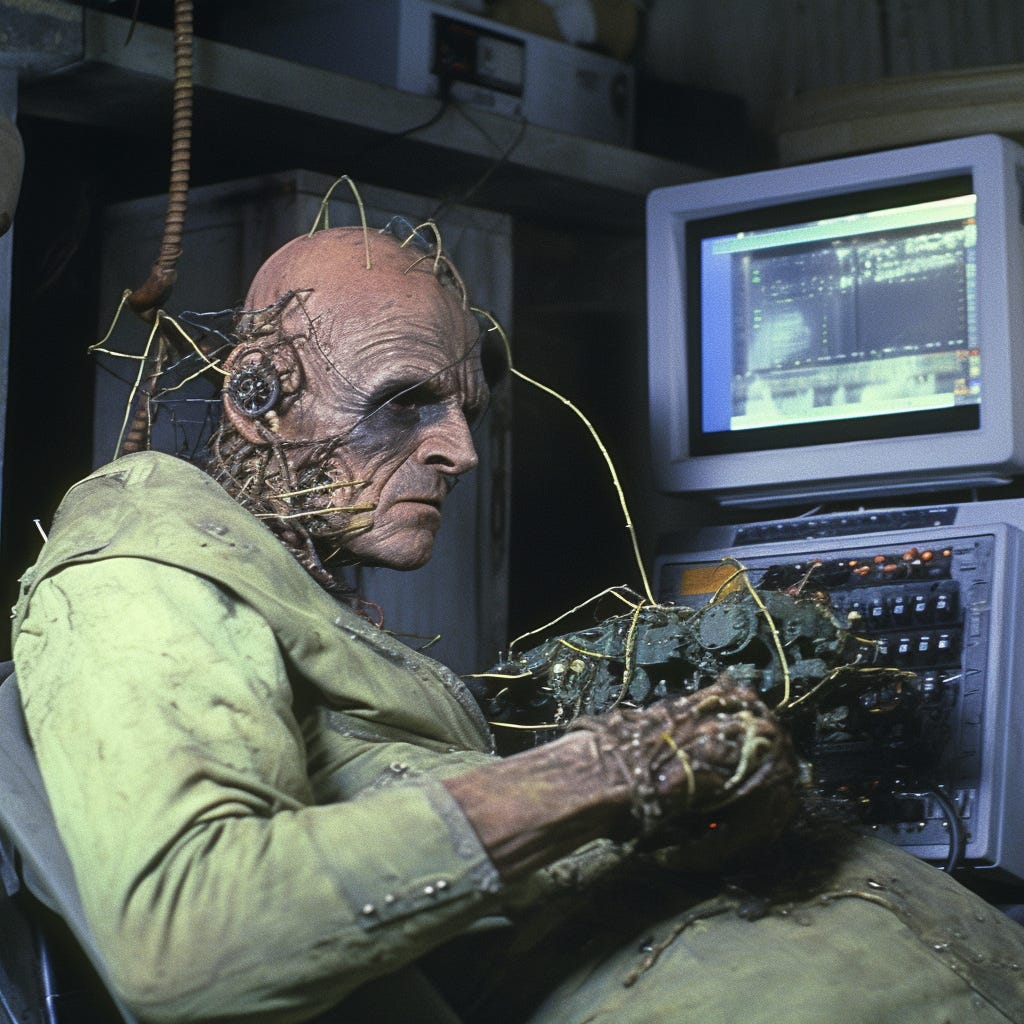Words offer the means to meaning, and for those who will listen, the enunciation of truth. And the truth is, there is something terribly wrong.
- Alan Moore, V for Vendetta
People often avoid bad news1. They’ll claim bad news upsets them, or causes them frustration, or makes them feel helpless, and that it’s easier to tune it out.
Some people take this avoidance behavior to the next level and keep bad news from others. They tell themselves they’re doing this in the name of ‘protection,’ or to ‘shield’ others from the tragedies of the world. And so, parents will avoid telling their children bad news2, hiding the reality that the world can be a harsh place because they don’t want to scare them.
I understand this intention. Throughout my Afghanistan deployments, family and friends would ask all the time what it was like, and I’d often hold back the full truth. For sure, I’d say, we were accomplishing positive change, like creating an environment where all kids could attend school or businesses could open.
But that wasn’t the full story.
I didn’t tell them about what it was like to do a next of kin notification, or the suicide bombers who’d infiltrate bases by dressing in the uniform of Afghan National Army soldiers with whom we were partnered. I didn’t tell them about the open sewage lagoon whose stench contaminated the air at Kandahar Airfield, or about the local worker on the post where we stayed who gouged the eyes from a cat for no discernable reason, because all of those things would’ve just concerned them, and so I kept that information to myself.
Unfortunately, ignoring a problem doesn’t make it go away. Instead, what normally happens when problems are ignored is they become worse. Then, by the time a problem is so big it can’t be ignored, it’s grown more complex and difficult to solve. At times, it might even be too late for a solution.
So, I am going to make a promise.
In the pages that follow, I am going to tell you about a crisis facing our world. I will not pull any punches. I will not pretend the Easter Bunny exists, or that a fat man can deliver toys to all the kids in the world in a single night, or even that we’re all going to come out of this okay because we don’t know that.
I do not do this to be cruel, though it may seem that way. Rather, I do this because I respect you. Maybe that sounds strange or sadistic, this idea that I will be harsh with you because I believe you can take it. In my defense, I would offer that in martial arts, we don’t improve when our training partners pull their punches. What happens, rather, in that case is that we develop bad habits that fail us when faced with a real-life attack. So, because our training partner respects us, and even more so when they like us or care for us, they must attack with real intent so that we can get better. To do otherwise is a disservice, because on the day we need the skills that might help us survive, we won’t have them. They will have let us down. And so, to help others face the future, I will do what needs to be done and say what needs to be said.
Because I’ll be damned if I let you, of all people, down.
In any event, I believe in you. As I said, you can take it. I know this because people, especially the young, are often far more resilient than they are given credit for.
They can handle the truth.
Besides, you’ve probably already felt that all is not well in our world. It’s widely known that our planet is in serious danger, with climate change and widespread environmental devastation the most obvious signs. There are other signs though, flaws in our political, economic, and social systems which set the conditions for year after year rises in fossil fuels emissions3 with no end in sight. These systems, originally designed to conquer nature in the name of progress and modernization, succeeded beyond our wildest dreams. Only now, like Frankenstein’s monster, the second and third-order consequences of these actions threaten to undo everything we’ve accomplished.
I should know. I’ve lived through the effects of consequences.
While chasing escaped Taliban prisoners in Afghanistan, soldiers under my command entered a village where there’d been reports of escapees hiding. While there, a stray dog attacked. It was thin, mangy, quite probably diseased. Our soldiers tried to shoo it away, but it wouldn’t leave them alone and so one of them fired a warning shot to scare it away. The bullet ricocheted - as they tend to do in real life as opposed to the movies - and hit a cow, wounding it enough that it had to be euthanized. The cow happened to be pregnant and, before it died, it gave birth to a premature calf, which then also died. And, as Kurt Vonnegut might say in the strange way of war stories, so it goes.
I went to make reparations with the elders, and while we were chatting, they told me there had never been any Taliban in the village, and then they told me a story, a fable about how in a war between bulls, it is the sheep who get trampled.
After we left, I asked my interpreter if he thought there had ever been Taliban in the village and he told me that if there weren’t before, there were now. It wasn’t hard to see that he was right, not in the faces of the elders when the maximum amount of money I was authorized to give them did not even cover the loss of the cow, much less the calf as well. For all my talk about how the mission was just, and how we were supporting the rule of law and providing security so development could take place, for all this talk, those people were worse off than if we’d never come to their village. And, by doing more harm than good in that Afghan village, no matter our good intentions, my team set ourselves back because if I can tell you nothing else from a lifetime of studying violence, it’s that Dr. Martin Luther King Jr. had it right when he said that violence begets violence. We pushed that boulder uphill, and then let it roll down again.
The same story of second and third order consequences plays out on a global level. The nation-state system, in place since 16484, has struggled to adapt to the challenges of globalization and climate change. Economic systems that raised billions out of poverty, simultaneously contribute to the destruction of the planet. Mass migration stresses international borders, and social media, a technology that aims to help us connect, is instead used to confuse fact with fiction. Today, it can be difficult to even understand what is going on, much less what to do about it.
In other words, at a moment when the human race faces the crisis of climate change, a threat whose solution must include service, cooperation and collaboration, the systems not only make working together more difficult, they actively make the root problems worse. These truths are difficult, and in the face of the challenge, it would be understandable to turn away.
But, as overwhelming as the situation might seem, there is a ray of light amid this darkness, which is that understanding what we’re up against empowers us to identify how to take action.
Eva M. Krakow, “Ignorance is Bliss: Why People Avoid Bad News,” in Psychology Today, Jul 09, 2020, https://www.psychologytoday.com/ca/blog/stretching-theory/202007/ignorance-is-bliss-why-people-avoid-bad-news, accessed November 4, 2020.
Gena Lynne C. Mooneyham, “Helping your children deal with bad news,” in Duke University School of Medicine, August 7, 2018, https://pediatrics.duke.edu/news/helping-your-children-deal-bad-news, accessed November 8, 2021.
Pierre Friedlingstein et al., “Global Carbon Budget 2020,” Earth System Science Data, 2020, Vol 12 (4): 3269-3340.
Iain McLean and Alistair McMillan. The Concise Oxford Dictionary of Politics. 3rd edition. Oxford, Oxford University Press: 2009.












Great post, I was deployed with the Tank Sqn a bit in 2008 as their FOO. We used to do the key leader engagement where we would use the mine clearing tank to get to the KLE. The OC would ask what we could do to help and the elder would be like - you could not rip through my fields and wadis and ruin our farms....
Second and third order effects.
With youth growing up in an all-digital age with so much information and disinformation at their fingertips it’s hard to know fact from fiction.
With the Ukraine war ongoing and Psyops and infowar in full swing from all sides it’s hard to understand the real truth on the ground.
If parents can’t guide children by sharing bad news and helping build resiliency it will lead to much more difficult problems for them when they need to be independent and face their own challenges in life as they get older.